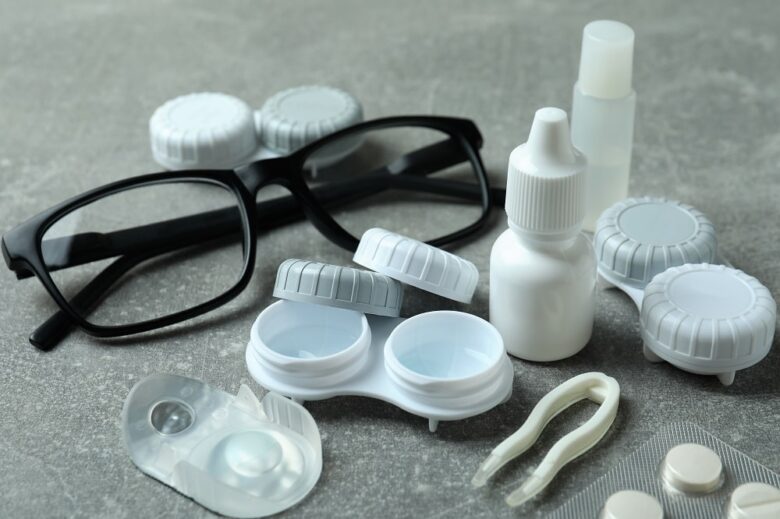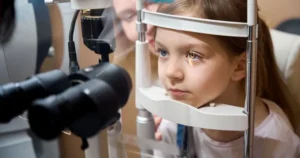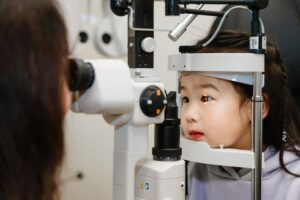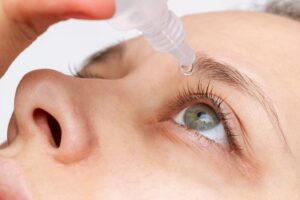Your eyes let you see the world, and just like any other body part, they need careful care to stay healthy. But a lot of people think that to keep their eyes healthy, they need to buy expensive vitamins or go through expensive treatments. However, you can protect your eyesight with easy, low-cost habits that you can incorporate into your daily life.
We’ll talk about five easy habits that will help your eyesight without breaking the bank in this piece. Today, when computer time is at an all-time high, these habits are great for people of all ages and walks of life.
1. Following the 20-20-20 rule
The 20-20-20 rule is one of the best ways to keep your eyes from getting tired, but it’s easy to forget about. Every 20 minutes, look at something at least 20 feet away for 20 seconds. Not hard, right? This small change in focus calms your eye muscles, which can get tired from staring at a screen for long periods of time.
When you stare at a screen all the time, your eyes have to stay close and tense for long amounts of time. This could cause dry eyes, tiredness, headaches, and even blurred vision. Giving your eyes a break, even if it’s only for 20 seconds, can help a lot with pain and keep digital eye strain from becoming a long-term problem.
This is a great habit because it’s easy to do, doesn’t cost anything, and doesn’t take much time. You can do it while reading, working on your computer, or using your phone.
2. Foods that are good for your eyes
You don’t have to spend a lot of money on vitamins to give your eyes the nutrients they need. In fact, many common foods are full of antioxidants and vitamins that are good for your eyes. Carrots and sweet potatoes, which are high in vitamin A, help keep your night vision sharp. Broccoli and citrus foods are great places to get vitamin C. Vitamin C helps the blood vessels in the eyes and may lower the risk of getting cataracts. Vit E, which can be found in spinach and sunflower seeds, helps protect your eyes from free radical damage.
Eggs and leafy veggies like kale contain lutein and zeaxanthin, which help block blue light that is bad for you. Omega-3 fatty acids, which can be found in flaxseeds or tuna in a can, help keep dry eye syndrome at bay. All of these nutrients are easy to find in cheap foods and can be easily added to home-cooked meals. By choosing foods that are high in nutrients, you can improve your health without spending a lot of money.
3. Getting Enough Sleep
Getting enough sleep is a natural way to make your eyes feel better. Your eyes get moist while you sleep, and muscles that have been stressed or exposed to irritants during the day start to heal. Not getting enough sleep can cause dry eyes, twitches, blurred vision, and even pain from inflammation.
Every night, adults should try to get seven to eight hours of good sleep. This gives the eyes a chance to rest and lowers the risk of them getting tired or dry. It could mean that you need to change the way you sleep if you wake up with red or itchy eyes. Turning off electronics at least 30 minutes before bed, drinking less caffeine at night, and sticking to a regular sleep routine can all help you get a good night’s sleep and keep your eyes healthy.
People don’t give sleep enough credit when it comes to protecting your eyes, but it’s free and very important for long-term eye health.
4. Drinking water and blinking more often
Water is important for keeping your eyes relaxed and moist. Loss of water in the body makes tears less likely to form, which can cause dry, itchy eyes. Even slight dehydration can make it hard to see and feel comfortable.
A lot of people also blink less when they stare at computers, which can make their eyes dry. When you blink, tears cover the surface of your eye and keep it clean and moist. Sometimes you need to tell yourself to blink more often when you spend a lot of time on your phone or computer. This is especially true in places with air conditioning, which can make the eyes even more dry.
Making an effort to blink often and drinking enough water during the day can make a huge difference in how your eyes feel by the end of the day. These habits are easy, don’t cost anything, and work really well for people who are trying to save money.
5. Putting on sunglasses that block UV rays
Lots of people forget that the sun’s UV rays can hurt the eyes just as much as they hurt the skin. Long-term exposure to UV light raises the chance of cataracts, macular degeneration, and even pterygium, which are growths on the eye.
Lucky for you, you don’t have to buy pricey fashion sunglasses to keep your eyes safe. There are a lot of affordable choices that offer 100% UV protection and can be found in many shops and stores. When you buy sunglasses, look for signs that say “UV400” or “100% UV protection.” These screens protect against both UVA and UVB rays, making them the best way to protect against sun damage.
Long-term eye health can be protected by wearing UV-blocking sunglasses outside all the time, even on cloudy days. It’s a small cost that will improve your eye health in a big way.
A Quick Comparison: Affordable Habits That Protect Vision
| Habit | Primary Eye Benefit | Estimated Cost |
|---|---|---|
| 20-20-20 Rule | Reduces digital eye strain | Free |
| Eye-healthy diet | Supports vision and prevents disease | $5–10/week |
| Sleep (7–8 hours) | Allows healing and reduces eye fatigue | Free |
| Hydration & blinking | Prevents dryness and irritation | Free |
| UV-protective sunglasses | Shields eyes from sun damage | $5–15 (one-time) |
FAQs About Eye Health on a Budget
Can I maintain good eye health without supplements?
Yes, most essential vitamins for eye health can be obtained through a balanced, affordable diet that includes fruits, vegetables, and healthy fats.
Is digital eye strain permanent?
No, digital eye strain is typically temporary and improves with rest and proper habits like the 20-20-20 rule. However, neglecting it can cause chronic discomfort.
How often should I see an eye doctor if I’m on a budget?
Most adults should get a comprehensive eye exam every one to two years. Community health programs or local clinics often offer affordable or free screenings.
Do I need sunglasses in winter or on cloudy days?
Yes, UV rays can penetrate clouds and reflect off snow, causing just as much harm. Wearing sunglasses year-round helps protect your vision.
Are blue light glasses necessary?
They’re optional. Healthy screen habits, like reducing screen time before bed and following the 20-20-20 rule, are often more beneficial and cost-effective.
Conclusion
Taking care of your eyes doesn’t have to be expensive. By building simple, everyday habits like practicing the 20-20-20 rule, eating nutrient-rich foods, getting enough rest, staying hydrated, and wearing affordable UV-protective sunglasses, you can protect your vision effectively and affordably.
These changes don’t require big lifestyle overhauls or costly products—just a little awareness and consistency. Your eyes are worth the effort, and with these budget-friendly habits, you’ll be seeing the benefits for years to come.




